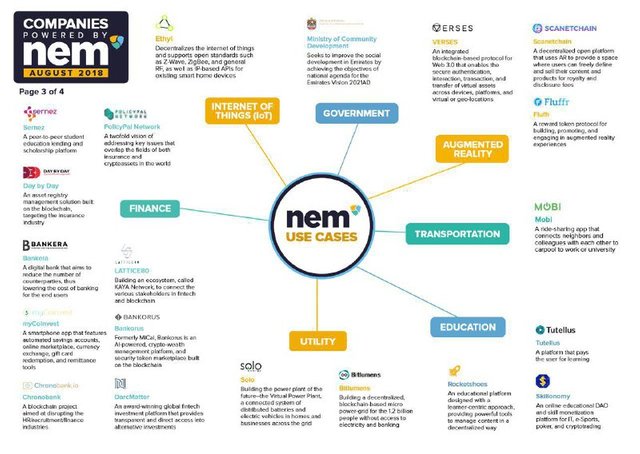How can NEM Blockchain be used to solve the developing world problems?

By Dominique Murchie
"This technology has no owner, no central point of failure and it can be used globally by everyone".
This means that no matter how rich or poor one is, everyone will have access to the infrastructure allowing one to climb out of poverty.
The majority of African states are still considered developing nations and have been held back by legacies of colonialism, resulting in problems such as armed conflicts, corruption, and poverty. But the blockchain ecosystem in many places is already starting to garner strength and has the potential to make a huge impact on African economies and societies.
While African tech ecosystems may not get the attention they deserve, the region is home to a number of emerging blockchain and crypto communities, and local players are using blockchain technology to tackle social, economic, and political problems – and as a launch pad into global markets.
Emerging blockchain hubs
While still in their early growth stages compared to the crypto hubs in central and eastern Europe and Switzerland, NEM blockchain communities in Kenya, South Africa, Nigeria, and Sudan are growing steady.
Tackling real problems
To date, NEM blockchain adoption has been sporadic across Africa, but the emerging use cases are tackling real social, economic, and political problems affecting hundreds of millions of people every day:
Fighting corruption
One of the main pulls of NEM blockchain technology is that it is decentralized, and transparent, leading to many possible use cases based on combating corrupt political and voting systems.
With inflation and corruption comes a lack of public trust in governments, central banks, and financial institutions. However, thanks to rapidly expanding smartphone ownership in Africa — use has doubled in just two years — tech savvy users can now download crypto wallets to keep their funds safe. Smartphone-based financial exchange is not new in countries like Kenya, which is already a world leader in mobile based P2P lending.
Combatting inflation
Cryptocurrencies are particularly useful in economies where there are restrictions on transporting cash across borders, where public access to mainstream banking is low, or where local economies are rife with inflation. In Zimbabwe, which has seen rapid inflation in recent years, Bitcoin sales have soared as locals rush to protect their savings before they devalue.
Many African countries have already shown a tendency to “leapfrog” technologies, as seen with the adoption of mobile internet use, and mobile based P2P lending for people who didn’t have access to modem internet or traditional banking in the first place. Experts argue that a lack of legacy systems could facilitate faster, smoother adoption of emerging technologies such as NEM blockchain.

In Africa, NEM blockchain technology presents another platform for digital empowerment.
In SA, the central bank recently trialled a blockchain proof of concept designed to simulate a "real-world" trial of a distributed ledger technology-based wholesale payment system.
Stephan Coetzee, NEM South Africa: "There is much work to be done. There are no global standards or regulations in place for the technology, and new skills are required in the workforce to support its rise. One thing is for sure, as the global discussions around blockchain technology continue to grow; Africa will be part of it."
Downloads:
https://nem.io/wp-content/themes/nem/files/NEM_techRef.pdf
https://nem.io/wp-content/themes/nem/files/ApostilleWhitePaper.pdf
https://nem.io/wp-content/themes/nem/files/catapultwhitepaper.pdf
Hi! I am a robot. I just upvoted you! I found similar content that readers might be interested in:
https://venturebeat.com/2018/04/01/blockchains-big-potential-in-africa/